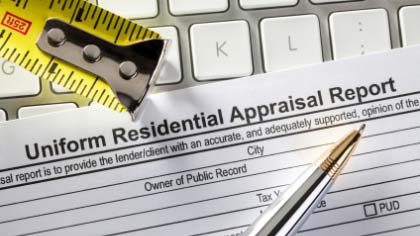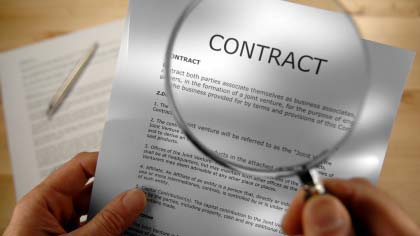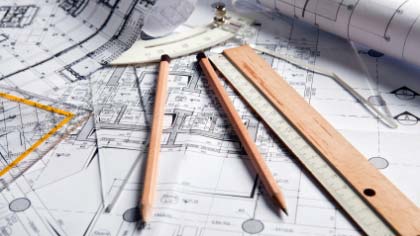Construction Loan Center
Choosing a Contractor
Exercise Caution in Choosing Your Contractor and Avoid Serious Heartache in the Near Future.
Construction loan lenders do need information about your contractor, but it up to you to choose the best one for your project.

Building your dream home can quickly turn into a nightmare of unmet schedules, cost over runs, shabby workmanship and endless arguments.
I have been originating and closing construction loans for a good number of years now and I have experienced clients dumping contractors and even contractors dumping clients. By that time in most cases the job is running behind schedule and over budget. Choosing a new contractor at this stage is difficult and further delays are inevitable.
Spending a little more time and paying a little more attention to the process of choosing your contractor can avoid all this.
In most cases the writing is on the wall from the very first day, but wishful thinking gets in the way of logic, which leads to disaster down the road.
A good number of articles have been written on the subject, and you should try reading at least one or two well before making your choice of a contractor.
This article is based on my experience and personal observations. You may whish to write the main points down and add others that I have not covered and indeed add to the list from your own experience of dealing with people. This way you will internalize the subject and become a naturally better judge of those you do business with.
During the processing of your construction loan, some information is collected from the contractor but that should not stop you from your due diligence. Here is a list of items to check and to look out for:
1- If your state requires a state license, ask for the number. Don't stop at that. Call the relevant state board and check on the license's status. You don't know who regulates contractors in your state? Ask Him/Her. And pay attention to the reaction.
There is no need to be shy. A legitimate and honest businessman will have no problem providing the information. We are involved in a highly regulated business and we proudly provide the relevant information along with phone numbers and links to the state bodies on our About Us page.
2- Ask for references. Pay attention to the reaction. Too quick a reaction and fast talk is probably a lie and a bluff. Too cautious a reaction is a sign of uncertainty. In any event write the names and numbers down and do call them. Go see them. Most people will actually welcome you simply to show off their achievement.
3- Are you building a home from the ground up? Make sure the contractor has built a complete project in the past. Experience counts; a ground up construction or a major remodel is a very different animal from room and bathroom additions.
4- Visit his/her place of business. Not all contractors have an office, but you need to make sure you are not dealing with fly-by-night operation.
5- Your construction loan package will include paper work for the contractor to complete. How does he handle that? The following is a list of warning signs.
- Doesn't have the time to complete the lender's line item cost breakdown and insists on using his own.
- Doesn't understand why the lender should be asking for credit references.
- Doesn't see why the construction loan lender should need to see the construction contract?
- Insists that in his experience non of the above are necessary and that this lender don't know anything about construction loans.
6- Be wary of the contractor who prefers to give a "complete package" price. No construction lender will accept that and neither should you. The line item cost breakdown does not have to be completed on every single line, but the more the merrier. Read it carefully, it will dictate the quality of the home you end up with.
7- Demand a material's list. You don't need the contractor who doesn't have the time for this. Some lenders don't require this and when they do little attention is paid to it.
Insist on a complete list of all materials and fixtures. Go to the showrooms, choose them and list your choices by make, model and /or quality. This list should be signed by the contractor and you and be made a part of the contract.
Saying "A good kitchen will cost so many dollars per foot" doesn't mean much when you go to the showroom at the end of the project only to find out that you hate what the construction loan budget has allowed for.
8- As a part of the construction loan process the contractor will be asked to provide evidence of Liability Insurance as well as evidence of Workman's compensation.
He/She may very well not have Workman's Compensation Insurance if he/she does not directly employ anyone. However, complaints about Liability Insurance are a sure sign of trouble.
9- As material costs are rising, payment of deposits on some deliveries may be required by suppliers and some construction loans will allow that. But be aware of the contractor who asks for up front money.
10- Construction loan disbursements are made in stages. Never ever pay a contractor before your local county or city inspector has signed off on that stage. The lender's inspector only verifies percentage of completion not compliance, so his approval does not mean that your local authorities will also sign off.





